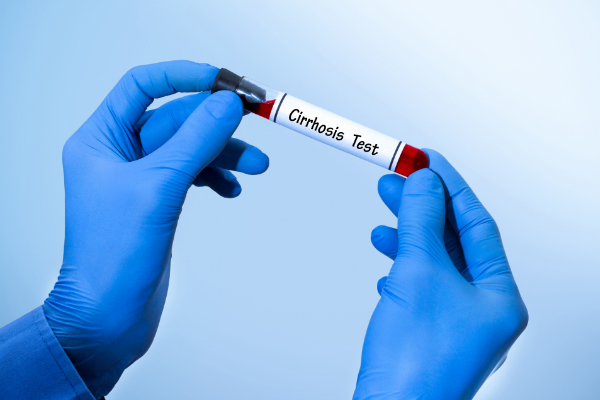Cirrhosis of the liver is a condition in which scar tissue invades the healthy tissues of the liver, preventing it from working effectively. Cirrhosis cannot be reversed- once the damage is done, the liver will not heal, and the scar tissue will remain. As cirrhosis gets worse, the function of the liver decreases, and it will eventually fail. However, if cirrhosis is caught in the early stages, treatment for the disease or condition causing the cirrhosis can help reduce any further damage.
Diagnosing Cirrhosis of the Liver
Diagnosis of cirrhosis of the liver will include a thorough review of your medical history, a physical examination, blood tests, and imaging (such as ultrasound, x-ray, or CT/MRI scans). Your physician may order a liver biopsy to understand better the level of damage your liver has. A biopsy can also help your physician determine if you have cirrhosis when other testing and imaging are inconclusive.
What Causes Cirrhosis of the Liver?
Many diseases can cause cirrhosis of the liver. Some individuals may have multiple factors that lead to cirrhosis. Some of these causes are more common than others, and some are easier to treat than others- treatment of the disease or condition leading to cirrhosis is key to reducing damage to the liver. As stated above, many diseases and conditions can cause cirrhosis of the liver. Some of these include:
- Alcoholic Liver Disease
- Non-alcoholic Fatty Liver Disease
- Chronic Hepatitis B & Chronic Hepatitis C
- Chronic Heart Failure
- Inherited Liver Disease
- Long-term Use of Certain Medications
Other risk factors that can increase your susceptibility for cirrhosis include alcohol abuse, those that have type 2 diabetes, if you are older than 50, or if you are male. Your physician can help you determine the proper steps to manage any diseases or conditions that play a factor in your liver health and function. Treatments for underlying conditions that can cause cirrhosis of the liver can help slow the progression of damage, slowing the progression of cirrhosis itself.
What Are the Signs and Symptoms of Cirrhosis of the Liver?
It is estimated that roughly 1 in 400 adults in the US have cirrhosis of the liver. However, this number may be higher because many individuals with cirrhosis of the liver do not know that they have the disease until they are in the later stages. This is because earlier stages of the disease may not have any symptoms, or symptoms may be mistaken for something else because they are common in other illnesses. Therefore, it is important to discuss any concerns about symptoms you may have with your healthcare provider. According to the National Institute of Diabetes and Digestive and Kidney Disease (NIDDK), early symptoms of cirrhosis of the liver may include:
- feeling tired or weak
- poor appetite
- losing weight without trying
- nausea and vomiting
- mild pain or discomfort in the upper right side of your abdomen.
As liver function gets worse, you may have other symptoms, including:
- bruising and bleeding easily
- confusion, difficulties thinking, memory loss, personality changes, or sleep disorders
- swelling in your lower legs, ankles, or feet, called edema
- bloating from the buildup of fluid in your abdomen, called ascites
- severe itchy skin
- darkening of the color of your urine
- A yellowish tint to the whites of your eyes and skin called jaundice.
As stated previously, many of the signs and symptoms of cirrhosis of the liver are common signs and symptoms of other illnesses. Therefore, you must discuss all of your symptoms with your healthcare provider. Early detection and treatment for underlying conditions are essential to reducing or slowing the progression of cirrhosis and giving you the best possible outcome.
How to Prevent Cirrhosis of the Liver?
There are certain steps individuals can take to help reduce their risk of cirrhosis. While some individuals (such as those with certain health conditions or inherited diseases) have a higher risk for cirrhosis, these steps can still help reduce the risk or slow the progression of cirrhosis.
- If you already have cirrhosis, do not drink alcohol
- If you do not have cirrhosis, limit alcoholic intake
- Eat a healthy diet
- Maintain a healthy weight
- Reduce risks for hepatitis
- Avoid medications that can damage the liver
- Quit smoking
- See your physician regularly
Again, there is no cure for cirrhosis. Once the damage has begun, it is irreversible, so it is always best to take any measures you can to prevent damage from happening. Living a healthy lifestyle of proper diet and exercise and avoiding activities that could result in liver damage can greatly reduce your risk of cirrhosis. Your physician can help you make healthy lifestyle choices and give you resources on smoking cessation, diet and exercise routines, and other helpful tools to set you up for success.
Professional Treatment for Alcoholism at Evoke Wellness at Cohasset
There are a variety of treatment options available for alcoholism or Alcohol Use Disorder. Here at Evoke Wellness at Cohasset, we offer comprehensive, compassionate, professional care to set a solid and lasting foundation for lifelong recovery. We provide men, women, and families with the skills and support needed for success in recovery. Our staff of highly qualified specialists is here for you. If you are struggling with Alcohol Use Disorder, let us help you start the path to recovery today.




